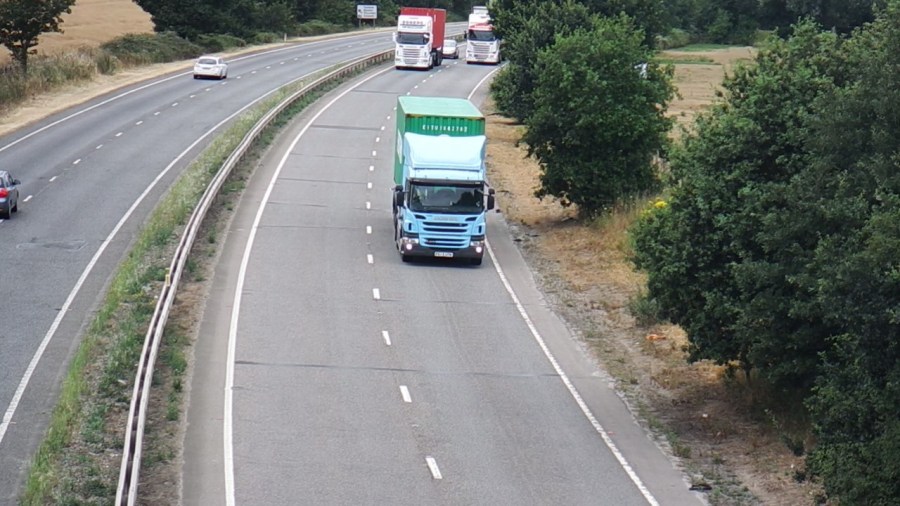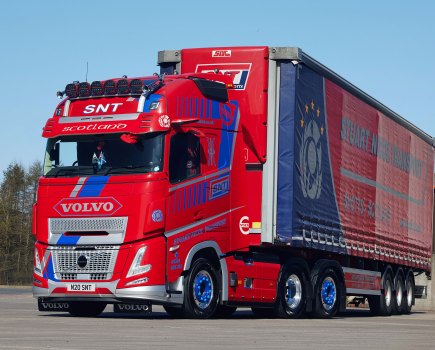As fuel-prices show no sign of coming down, the importance of aerodynamics increases.
That’s the message from Hatcher, which is advising that fleets check roof spoilers for adjustment or damage.
Essentially, fuel is a third of the cost of running a truck.
Therefore, anything that reduces fuel consumption could have a big cost saving.
Hatcher’s Craig Poacher said for every 36cm of trailer exposed above a cab, there’s a 1% increase in fuel use.
As a result, just small changes could have “a significant impact on the bottom line”, he reasoned.
Therefore, the importance of aerodynamics should be realised by fleet operators.
“Aerodynamic performance and fuel savings has numerous variables including wind speed and direction,” said Poacher.
“However, typically for a heavily loaded vehicle travelling at 56 km/h this is the loss hauliers can expect.”
Continuing, the Hatcher man said fitting an air kit can be worth a 7% saving in fuel use.
Specifically, that saving applied to vehicles trunking between distribution centres.
However, savings are not limited to artics trunking long distances.
For example, work with one courier revealed savings of 3% through a correction to aerodynamic kit.
“There was insufficient adjustment to meet the height of the body, leaving a gap of 400mm,” recalls Poacher.
“For a 16-tonne truck doing 50,000 miles a year, the payback could be less than 10 months,” he noted.
However, Hatcher believes the importance of aerodynamics is being overlooked by many.
In other words, the company says aerodynamics is an area many hauliers can improve upon.
For example, in 2018 the company filmed vehicles travelling along the A14.
Interestingly, 123 vehicles out of 209 boxed rigids or artics had incorrectly adjusted or damaged roof spoilers.
In addition, five of the vehicles had no roof spoiler at all.






